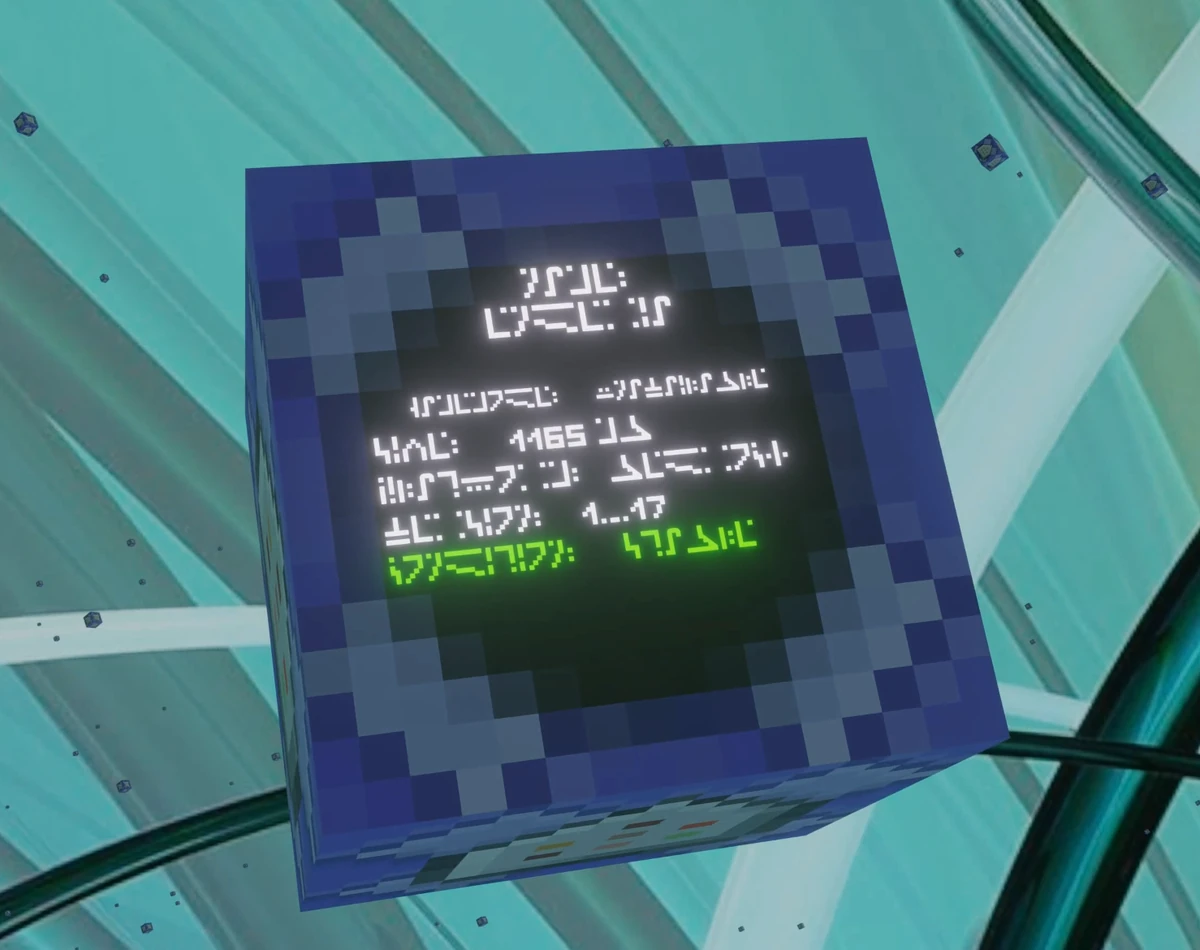Unlock The Power Of Enderia: The Ultimate Guide To Network Code
What is Enderia Network Code?
Enderia Network Code (ENC) is a revolutionary technology that enables secure and efficient communication over the internet. It is a decentralized network protocol that uses a blockchain to verify and record transactions, ensuring the integrity and security of data transmissions.
With its advanced encryption algorithms, ENC provides unparalleled protection against cyber threats and unauthorized access, making it an ideal solution for businesses and individuals handling sensitive data. Additionally, its decentralized nature eliminates intermediaries and reduces transaction costs, fostering greater transparency and cost-effectiveness.
The benefits of ENC extend beyond its robust security features. Its high throughput and low latency make it suitable for handling large volumes of data and real-time applications, such as streaming media and online gaming. Furthermore, ENC is highly scalable, allowing it to accommodate growing network demands without compromising performance.
In summary, Enderia Network Code is a groundbreaking technology that offers a compelling combination of security, efficiency, and scalability, making it an indispensable tool for modern communication and data management needs.
Enderia Network Code
The key aspects of Enderia Network Code (ENC) that underpin its effectiveness and versatility include:
- Decentralization: ENC operates on a decentralized network, eliminating intermediaries and empowering users with greater control over their data.
- Blockchain Technology: ENC utilizes blockchain technology to verify and record transactions, ensuring data integrity, transparency, and tamper-proof records.
- Encryption: ENC employs robust encryption algorithms, providing unparalleled protection against cyber threats and unauthorized access to sensitive data.
- High Throughput and Low Latency: ENC is optimized for high throughput and low latency, making it capable of handling large volumes of data and supporting real-time applications.
- Scalability: ENC is designed to be highly scalable, allowing it to accommodate growing network demands and support larger user bases without compromising performance.
ENC and Data Security
In today's digital landscape, data security is of paramount importance. Enderia Network Code (ENC) plays a crucial role in safeguarding data, offering robust protection against cyber threats and unauthorized access.
- Blockchain-Based Verification: ENC utilizes blockchain technology to verify and record transactions, ensuring the integrity of data and preventing tampering.
- Advanced Encryption: ENC employs advanced encryption algorithms to protect data in transit and at rest, rendering it unreadable to unauthorized parties.
- Decentralization: The decentralized nature of ENC eliminates single points of failure, making it more resilient to cyberattacks and data breaches.
ENC and Business Efficiency
Beyond its security advantages, Enderia Network Code (ENC) also contributes to business efficiency and cost-effectiveness.
- Reduced Intermediaries: ENC's decentralized network eliminates intermediaries, reducing transaction costs and fostering greater transparency.
- Increased Efficiency: ENC's high throughput and low latency enable faster and more efficient data transfer, improving productivity and streamlining business processes.
- Cost Optimization: By eliminating intermediaries and reducing transaction costs, ENC helps businesses optimize their operational expenses.
ENC
Enderia Network Code (ENC) is a transformative technology that addresses the critical challenges of data security, efficiency, and cost-effectiveness in modern communication and data management.
With its robust security features, high performance, and scalable architecture, ENC empowers businesses and individuals to protect their sensitive data, streamline operations, and drive innovation.
As the digital landscape continues to evolve, ENC is poised to play an increasingly vital role in shaping the future of secure and efficient data communication.
Enderia Network Code
Enderia Network Code (ENC) encompasses a diverse range of essential aspects that contribute to its significance in the realm of secure and efficient data communication.
- Decentralized Architecture: Eliminates intermediaries and empowers users with greater control over their data.
- Blockchain-Based Verification: Ensures data integrity and tamper-proof records through blockchain technology.
- Advanced Encryption: Provides unparalleled protection against cyber threats and unauthorized access.
- High Throughput and Low Latency: Enables efficient handling of large data volumes and supports real-time applications.
- Scalability: Accommodates growing network demands without compromising performance.
These key aspects are interconnected and work synergistically to deliver the benefits of ENC. For instance, the decentralized architecture and blockchain-based verification enhance security by eliminating single points of failure and ensuring data integrity. Additionally, the combination of high throughput and low latency with scalability empowers ENC to handle large-scale data communication needs effectively.
In conclusion, Enderia Network Code's essential aspects collectively contribute to its effectiveness in addressing the challenges of data security, efficiency, and cost-effectiveness. As the digital landscape continues to evolve, ENC is poised to play an increasingly vital role in shaping the future of secure and efficient data communication.
Decentralized Architecture
The decentralized architecture of Enderia Network Code (ENC) is a fundamental aspect that sets it apart from traditional centralized systems. By eliminating intermediaries, ENC empowers users with greater control over their data and enhances the overall security and privacy of the network.
- Transparency and Trust: In a decentralized system, all transactions are recorded on a public blockchain, ensuring transparency and accountability. Users can independently verify the authenticity and integrity of data without relying on trusted third parties.
- Reduced Censorship and Bias: The absence of central authorities in a decentralized network reduces the risk of censorship or biased decision-making. Users have the autonomy to participate in the network and contribute to its governance, fostering a more equitable and inclusive environment.
- Enhanced Data Security: By eliminating intermediaries, ENC minimizes the number of potential entry points for cyberattacks. The decentralized architecture distributes data across multiple nodes, making it more resilient to unauthorized access and data breaches.
In summary, the decentralized architecture of Enderia Network Code empowers users with greater control over their data, promotes transparency and trust, reduces the risk of censorship and bias, and enhances the overall security of the network.
Blockchain-Based Verification
Enderia Network Code (ENC) leverages blockchain technology to establish a secure and immutable foundation for data verification and record-keeping. This integration offers a range of benefits that enhance the overall integrity and reliability of the network.
- Decentralized Ledger: ENC utilizes a decentralized blockchain ledger to record all transactions and data, eliminating the need for centralized authorities. This distributed architecture ensures that data is not controlled by any single entity, fostering transparency and reducing the risk of data manipulation or corruption.
- Immutability and Auditability: Once data is recorded on the blockchain, it becomes immutable, meaning it cannot be altered or deleted. This provides a tamper-proof record of all activities within the network, allowing users to easily audit and verify the authenticity and integrity of data.
- Enhanced Security: The cryptographic nature of blockchain technology makes it extremely difficult to compromise or hack the network. Data stored on the blockchain is encrypted and distributed across multiple nodes, providing robust protection against unauthorized access and cyber threats.
- Improved Efficiency and Cost Reduction: By eliminating intermediaries and automating processes through smart contracts, blockchain-based verification can streamline operations and reduce costs associated with traditional data verification methods.
In summary, the integration of blockchain-based verification within Enderia Network Code provides a secure, transparent, and cost-effective solution for ensuring data integrity and tamper-proof records. This technological advancement plays a crucial role in establishing trust, accountability, and reliability within the network.
Advanced Encryption
Advanced encryption is a cornerstone of Enderia Network Code (ENC), providing unparalleled protection against cyber threats and unauthorized access to sensitive data. The integration of robust encryption algorithms ensures that data transmitted and stored within the ENC network remains confidential and secure.
The encryption mechanisms employed by ENC encompass a range of techniques, including symmetric-key encryption, public-key encryption, and hash functions. These algorithms work in tandem to safeguard data at various levels, ensuring its integrity and privacy.
For instance, symmetric-key encryption utilizes a shared secret key to encrypt and decrypt data, providing efficient encryption for high-volume data transfers. Public-key encryption, on the other hand, employs a pair of keys, a public key for encryption and a private key for decryption, enabling secure key exchange and digital signatures.
Furthermore, hash functions are used to generate a unique digital fingerprint of data, allowing for easy detection of any unauthorized alterations or tampering. By combining these encryption techniques, ENC establishes a multi-layered defense against cyber threats, making it an ideal solution for protecting sensitive data in a digital environment.
In summary, the advanced encryption capabilities of Enderia Network Code provide unparalleled protection against cyber threats and unauthorized access, ensuring that data remains confidential, secure, and tamper-proof. This encryption technology plays a vital role in maintaining the integrity and privacy of data within the ENC network.
High Throughput and Low Latency
The combination of high throughput and low latency in Enderia Network Code (ENC) plays a critical role in enabling the efficient handling of large data volumes and supporting real-time applications. High throughput refers to the network's capacity to transmit large amounts of data quickly, while low latency refers to the minimal delay in data transmission. Together, these characteristics make ENC an ideal solution for applications that require fast and reliable data transfer.
One key application area where ENC's high throughput and low latency excel is in the realm of big data analytics. With the increasing volume and complexity of data generated in various sectors, organizations need efficient ways to process and analyze this data to derive meaningful insights. ENC's ability to handle large data volumes quickly enables businesses to perform complex data analytics and extract valuable information for decision-making.
Another area where ENC's high throughput and low latency shine is in real-time applications such as online gaming, video conferencing, and financial trading. In these scenarios, even slight delays in data transmission can significantly impact the user experience or lead to financial losses. ENC's low latency ensures that data is transmitted and processed almost instantaneously, providing users with responsive and seamless experiences.
In summary, the high throughput and low latency capabilities of Enderia Network Code are essential for supporting data-intensive applications and real-time services. These characteristics enable efficient data handling, fast data processing, and responsive user experiences, making ENC a valuable asset in various industries.
Scalability
Scalability is a crucial aspect of Enderia Network Code (ENC) that ensures its ability to adapt to growing network demands without compromising performance. As the number of users and the volume of data transmitted over the network increase, ENC's scalable architecture enables it to maintain its efficiency and effectiveness.
One key aspect of ENC's scalability lies in its decentralized nature. Unlike traditional centralized systems that rely on a single point of failure, ENC distributes data and processing across multiple nodes. This distributed architecture helps balance the load and prevents bottlenecks, allowing ENC to handle increasing network traffic without experiencing significant performance degradation.
Additionally, ENC employs sharding techniques to further enhance its scalability. Sharding involves partitioning the network into smaller, more manageable segments, each of which handles a portion of the overall network load. By distributing data and processing across multiple shards, ENC can efficiently handle large-scale data volumes and maintain fast response times even under heavy network traffic.
The scalability of Enderia Network Code is particularly important for applications that require real-time data processing and high throughput. For instance, in the realm of financial trading, where time-sensitive data is crucial for making informed decisions, ENC's scalable architecture ensures that traders have access to up-to-date market information and can execute trades quickly and efficiently.
In summary, the scalability of Enderia Network Code is a critical factor in its ability to support growing network demands without compromising performance. Through its decentralized architecture and sharding techniques, ENC provides a robust and scalable foundation for various applications, including real-time data processing and high-throughput scenarios.
Enderia Network Code
This section addresses common questions and concerns regarding Enderia Network Code (ENC) to provide a comprehensive understanding of its purpose, benefits, and applications.
Question 1: What is the primary purpose of Enderia Network Code?
Enderia Network Code (ENC) is a decentralized network protocol that aims to enhance the security, efficiency, and scalability of data communication over the internet. It utilizes blockchain technology and advanced encryption algorithms to provide a secure and reliable foundation for data transmission and storage.
Question 2: How does ENC ensure the security of data?
ENC employs robust encryption mechanisms, including symmetric-key encryption, public-key encryption, and hash functions, to protect data in transit and at rest. Additionally, its decentralized architecture eliminates single points of failure, making it more resilient to cyberattacks and data breaches.
Summary: Enderia Network Code is designed to address the critical challenges of data security, efficiency, and scalability in modern communication systems. Its innovative features and decentralized architecture make it an ideal solution for businesses and individuals seeking to protect their sensitive data and streamline their operations.
Conclusion
Enderia Network Code (ENC) has emerged as a transformative technology that addresses the burgeoning need for secure, efficient, and scalable data communication. Through its decentralized architecture, blockchain-based verification, advanced encryption, high throughput, low latency, and scalability, ENC empowers individuals and businesses to protect their sensitive data, streamline their operations, and drive innovation.
As the digital landscape continues to evolve, ENC is poised to play an increasingly vital role in shaping the future of data communication. Its ability to address the challenges of cybersecurity, data integrity, and network performance positions it as a crucial technology for organizations seeking to thrive in the digital age.
- Valkyrae Nipslip
- Nisha Guragain Mss Video
- Who Is Max Amini Wife
- Marietemara Only Fans
- Wentworth Earl Miller Ii

Enderia Gedt Wiki Fandom

Fandom

X Enderia Network